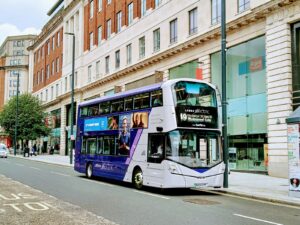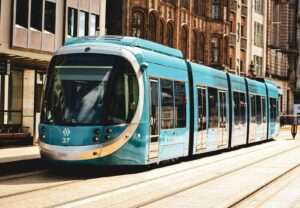A group of businesses including Ocado, the AA and Majestic Wines have written to the Mayor of London asking him to reconsider the removal of the Congestion Charge exemption currently enjoyed by electric vans.
Electric vans will become liable to pay the charge at the same level as their ICE counterparts, from the end of next year.
Edmund King OBE, President of the AA said: ‘Much has been done in London over the last few years to improve air quality and this should be applauded. Ten years ago, it was common to blow your nose and fine black particulates on your handkerchief. This has thankfully changed.
‘However, cutting the congestion charge discount for electric vans is a detrimental policy which could backfire on the health of Londoners and the economy of London. We still need to encourage zero emission transport rather than deter it.’
There is clear evidence that the transition to electric vans needs as much help as it can get, with the vehicles currently making up only 3% of all vans registered in London.
Furthermore despite the ULEZ scrappage scheme having spent £100 million getting polluting vans off the road, only 2% of those scrapped were replaced with an electric van.
The letter reads:
Dear Mayor Khan,
Our businesses support your mission to build a fairer, greener city for everyone.
We have been working with you to clean London’s air and to tackle the climate crisis by ditching diesel and investing in electric and pedal powered vehicles.
Your decision to exempt electric vehicles from the Congestion Charge has played a fundamental role at easing the cost of investing in environmentally friendly fleets.
We are deeply troubled that this exemption ends next year. This will force leading businesses such as ours to pay up to £5,500 annually for every electric vehicle driven in central London, where air quality is the worst.
Many of us have taken on debt to invest in our children’s future and in the air that we breathe. If this plan goes ahead then it will bring an astronomical cost to our businesses at a challenging time.
Worse still, you will hamper the efforts of many businesses transitioning to cleaner transport.
Countless business owners wish to move away from dirty diesel vans and to electric alternatives, they should be supported and not hindered doing so.
We urge you to do the right thing for us and for the health of all Londoners by continuing this exemption beyond next year.
Oliver Lord, UK Head of Clean Cities, said: ‘The Mayor has taken ambitious and successful measures to tackle air pollution in London but scrapping this exemption is at odds with his track record and his commitment on climate.
‘Ultimately, small businesses are those set to suffer the most, with the progress towards a cleaner, electric future choked off in an economic situation already fraught with challenges.
‘How is it right that a dirty diesel van pays the same as a cleaner electric vehicle in the most polluted part of the UK? This defies logic and the best international practice. Now is the time for the Mayor to cement his efforts for change by maintaining the exemption and working on a broader package of support for green freight in the capital.’
Laura Timm, Federation of Small Businesses, London Policy Chair said: ‘Small firms all over London have faced a ‘cost of doing business crisis’ for the best part of a decade and many have “done the right thing” and invested in green initiatives within their business. For businesses who have purchased electric vans they should be supported and not be at risk of losing the Congestion Charge exemption on Christmas Day 2025.
‘We urge the Mayor of London and TfL to maintain this supportive measure for businesses as it sends the right signal to struggling small businesses.’
















Leave a Reply